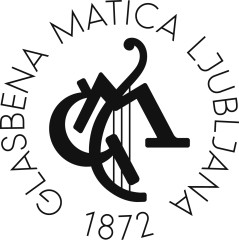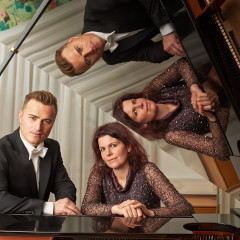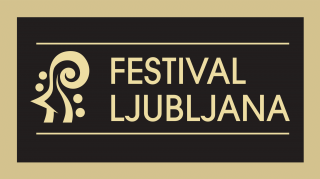Important information
Matjaž Robavs, baritone
Andreja Kosmač, piano
Programme:
Josip Prochazka (1874–1956):
What Would I Ask You
Fran Gerbič (1840–1917):
Nobody Knows
Like A Flower
Benjamin Ipavec (1829–1908):
In A Memorial Book
Monk
Into Dark And Storm
Josip Ipavec (1873-1921):
Poem
Wild rose and ivy
Marjan Kozina (1907–1966):
from the cycle Tri šaljive pesmi (Three Humorous Songs): From Čavkavian Lyric Poetry
The Last Dinar
Slavko Osterc (1895–1941):
In The Evening
You Are Gone From The Garden
Lucijan Marija Škerjanc (1900–1973):
White Clouds
Autumn Song
Ljubo Rančigaj (1936):
from the cycle Pesmi sanj (Songs of Dreams):
Serenity
Silent Spring In The Young Birches
Andrej Makor (1987):
Game
Anticipation
Katarina Pustinek Rakar (1979):
Invitation
The Pond
In the nineteenth century, musical settings of Slovene poems were an effective way to strengthen national awareness. The oeuvres of the composers of that period mostly consist of vocal music, in particular choral music, which was performed by numerous newly established choral societies. The two most important Slovene composers of the second half of the nineteenth century were Fran Gerbič and Benjamin Ipavec. The programme proposes also Benjamin’s nephew music, Josip Ipavec. Another important figure was Anton Foerster, one of the many musicians of Czech origin to have a significant influence on the development of musical life in Slovenia and who, particularly at the turn of the twentieth century, brought the creative achievements of musical culture in the Czech lands to this country. Their number also included Josip Prochazka, whose song Kaj bi te vprašal (What Would I Ask You) to a text by Anton Aškerc was published in the first issue of Novi akordi, musical periodical with high editorial standards. Many Slovene musicians studied in Prague, among them the aforementioned Gerbič, Marjan Kozina and Slavko Osterc. For Osterc the period of his studies in Prague represented such an important turning point in his creative work that after his return he disowned the majority of his early works, including the song included in the programme. The two songs by Lucijan Marija Škerjanc also belong to the composer’s earliest periods, in which the Lied played a central role. The last part of the programme presents music by contemporary composers with a particular affinity for vocal composition. Ljubo Rančigaj won the 2013 Kozina Prize both for his achievements in the Lied tradition and for his works for piano. Two representatives of the younger generation of composers are themselves singers: Andrej Makor was the winner of this year’s Student Prešeren Prize of the Academy of Music for his compositions, most of which are for voice; Katarina Pustinek Rakar has for a number of years been passing on her knowledge and experience to younger generations through her teaching work and as a director of choirs.
The songs in the programme will be sung by the baritone Matjaž Robavs, accompanied on the piano by Andreja Kosmač. Robavs has performed numerous times at important festivals (Salzburg, Lucerne, Schwetzingen, etc.) and in opera houses in Klagenfurt, Schwerin, Vienna, Ljubljana, Antwerp, Wexford, Baden-Baden, Zürich, Frankfurt and Milan. He has made radio and television appearances in Europe and Japan and has recorded four solo albums. He also appears in recordings of three international opera productions. Robavs teaches at the Academy of Music in Ljubljana and gives seminars on Lied interpretation at various musical institutions and universities both at home and abroad.








